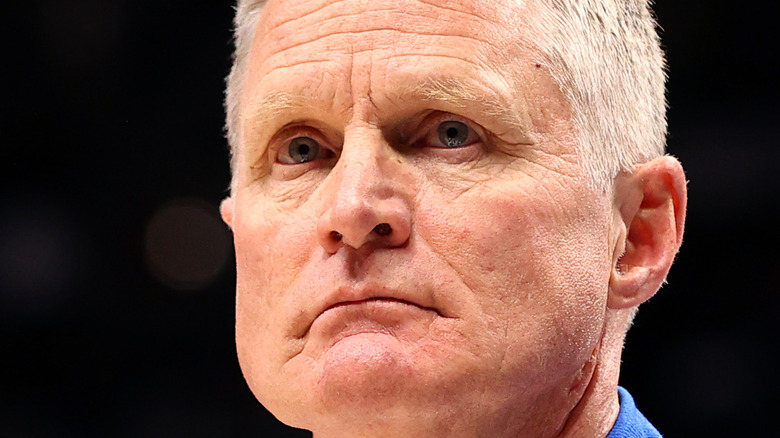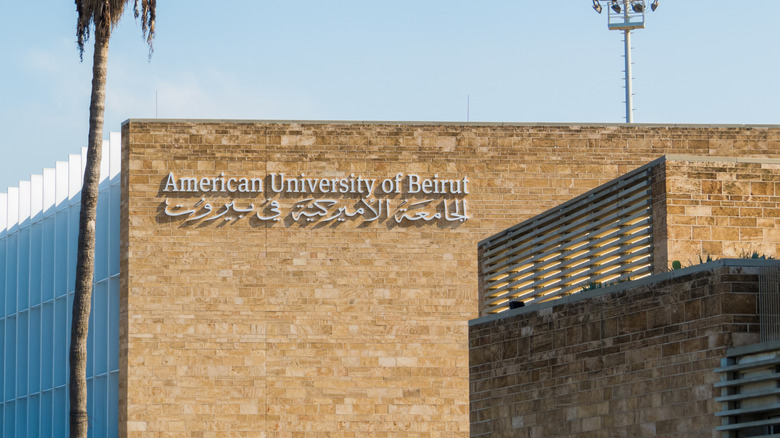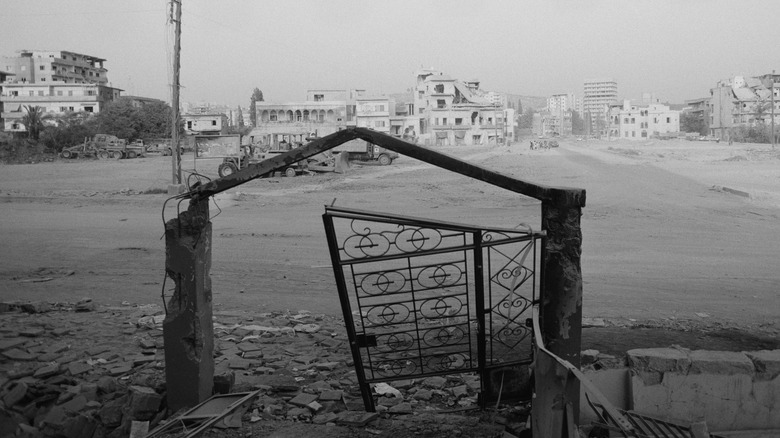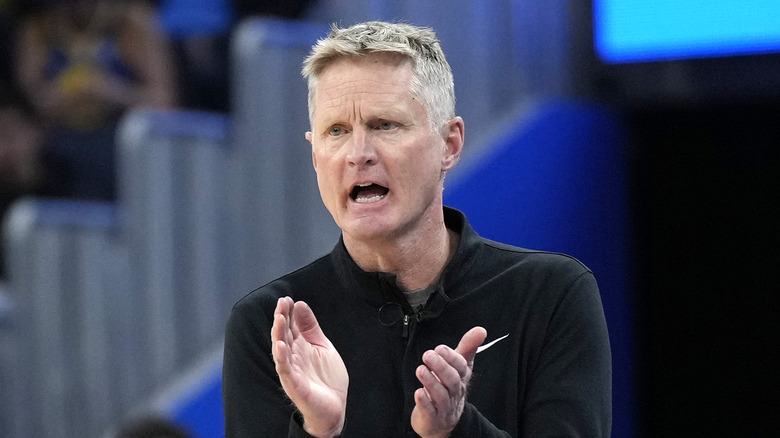The Tragic 1984 Murder Of Steve Kerr's Father
Steve Kerr is regarded as one of the best coaches in the NBA, and will likely go down as one of the greatest in NBA history given his success at the helm of the Golden State Warriors. Since taking over the Warriors bench ahead of the 2014-15 season Kerr has led the team to three NBA Championships (including one in his first season) and five straight finals appearances from 2014-2015 to 2018-19 (via Basketball Reference).
Kerr — who was named one of the NBA's Top 15 of All-Time in 2022, per Sports Illustrated — spent 15 years in the NBA as a player and several seasons in the Phoenix Suns' front office before taking the job on the Warriors' sideline. Thanks in large part to the success he has had with the Warriors, he has been able to champion social causes that he cares about, most notably the passing of more stringent gun laws.
Following the shooting in Uvalde, Texas in 2022 that left 19 students and 2 teachers dead, Kerr spoke out against gun violence as he has numerous times in the wake of other, similar tragedies. What some may not realize, is that Kerr's staunch views on gun control stem from personal experience, as his father was a victim of gun violence in 1984 (via People).
Steve Kerr's father was the president of the American University of Beirut
Steve Kerr was born in Beirut, Lebanon in 1965. Kerr's father, Dr. Malcolm Kerr was an American citizen and went to school in the United States, but according to Arab News, he grew up in Lebanon where his parents taught at the American University of Beirut. According to The New York Times, Dr. Kerr's father, Stanley, was a biochemist while his mother, Elsa, was the university's dean of women. Malcolm graduated from Princeton University in 1953, according to The U.S. Sun, and in 1955 he earned a master's degree in Arabic studies. Kerr became a well-respected presence in the field of Middle Eastern and Arab studies.
In 1982, Kerr took over as the president of the American University of Beirut. This was reportedly his life's goal, and Kerr we reportedly very popular with the university's student body. In 1984, one of Kerr's friends Professor Edwin T. Prothro told The New York Times that even though Kerr's greatest ambition was to become the university president, he knew that his dream job could come with danger. "When the time came, he knew his life could be in danger – he talked about it to me several times – but he took the job anyways because he loved this place and he wanted to build it into something special," Prothro said.
The assassination of Dr. Malcolm Kerr
On January 18, 1984, Dr. Malcolm Kerr was walking through the halls of the American University of Beirut on his way to his office, according to Arab News. This was during the Lebanese Civil War, a war that lasted from 1975 to 1990 that saw a series of militias battling each other and parts of the Lebanese Army. Other countries even became involved including Syria and Israel (per Britannica).
At some point, two armed men ambushed Dr. Kerr and fired two shots into his head, killing the 52-year-old university president. According to an article in The New York Times from the day after the assassination, French news agency Agence France received a phone call at their Beirut office from a man who claimed the killing was the work of a pro-Iranian group of militants called Islamic Holy War. The caller also claimed to the group had perpetrated two previous attacks on the American Embassy and a Marine compound. However, police couldn't even verify the existence of the Islamic Holy War. Both gunmen managed to escape, and the murder has never officially been solved.
Steve Kerr has become outspoken on political matters
Steve Kerr fled Lebanon several months before his father's death as the fighting ramped up near the Lebanese capital, according to The New York Times. After making his foray into coaching, Kerr became known for his deep knowledge and willingness to discuss complex or controversial topics. This willingness to talk openly about politics, in a climate where players and coaches are often told to "stick to sports" is something he attributed to his former coaches, Phil Jackson, and Greg Popovich, and how they didn't shy away from having conversations about politics in their locker rooms.
While Kerr has spoken out about a variety of issues but he has become notable for his outspokenness about gun control; something that's likely unsurprising given his family's tragic history. According to People, Kerr directed his comments following the Uvalde shooting toward lawmakers for not having passed gun control legislation, even after several mass shootings in recent years including the 2016 Pulse nightclub shooting and a racially motivated shooting at a grocery store in Buffalo, New York, just weeks before the tragedy in Uvalde.
"I ask all of you senators who refuse to do anything about the violence and school shootings and supermarket shootings, I ask you: Are you going to put your own desire for power ahead of the lives of our children and our elderly and our churchgoers?" Kerr asked. "Because that's what it looks like. That's what we do every week."



